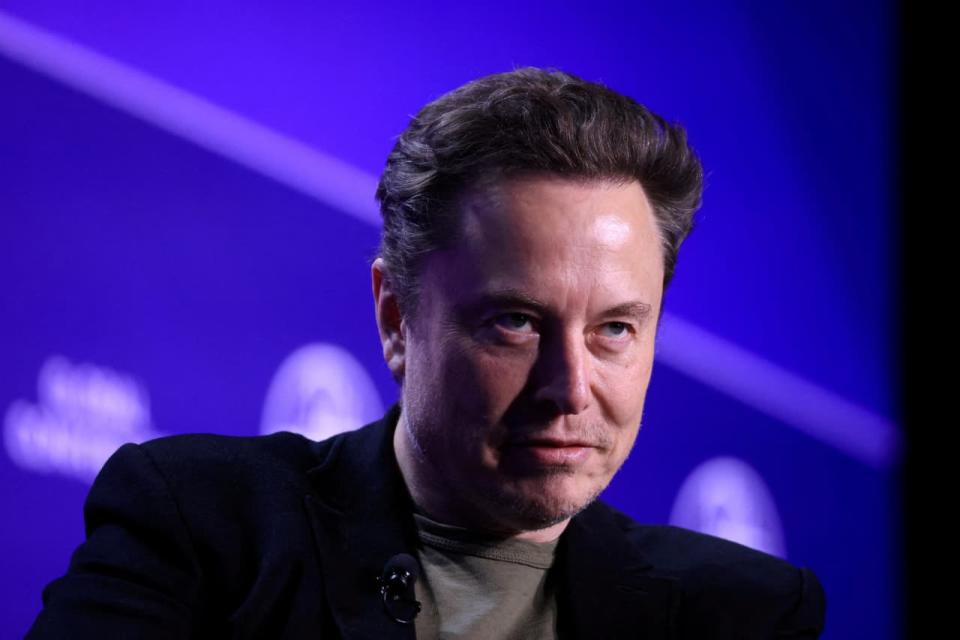Starlink Caught in Crosshairs of Elon Musk’s Battle With Brazil

Brazil is preventing Starlink, Elon Musk’s satellite-internet operation, from conducting financial transactions in the country, the business said Thursday in a post on X, further escalating an already fraught battle between Musk and Brazil’s highest court.
Starlink, part of Musk’s SpaceX, said it received an order earlier this week that froze its finances and was issued in secret and without due process, which is guaranteed by Brazil’s constitution. Starlink plans to address the matter legally, it said in a follow-up post.
Most Read from The Wall Street Journal
The Alleged Kickback Schemes That Inflated Costs for Home Buyers
He Raised Disney Park Prices—and Fans Still Love Him. Now He’s on the CEO Shortlist.
SpaceX will provide Starlink internet service to users in Brazil for free until the situation is resolved, Musk said Thursday evening in a post on X. “We cannot receive payment, but don’t want to cut anyone off,” he wrote, pointing to schools and hospitals in remote parts of the country that use Starlink.
Brazil’s Supreme Court didn’t respond to a request for comment about Starlink.
On Wednesday, the court threatened to ban X within 24 hours unless Musk’s social-media platform appoints a new legal representative for the country, according to an order the court posted on X.
Shortly after the deadline expired Thursday night, X said it expects to be ordered to shut down in the country, implying it didn’t adhere to the court’s request. Two hours later, the platform was still operational in Brazil.
The Supreme Court didn’t respond to requests for comment about the ban.
Any ban would need to be implemented by the country’s telecommunications companies so it could take hours, or even days, to take effect, said Marcio Chaves, a S?o Paulo-based lawyer and professor in digital law.
In recent years, state judges have imposed temporary bans on the messaging app WhatsApp after Facebook refused to provide chat logs related to a criminal investigation.
Those bans lasted hours. WhatsApp is used by much of the population in Brazil, meaning the courts faced intense pressure to lift the bans, Chaves said.
“X is a very different case, it doesn’t have the same market share,” he said, saying any ban could last much longer.
Earlier this month, X said it was closing its operations in Brazil after a monthslong clash with one of the court’s justices, who had ordered the platform in April to remove several accounts that were deemed to be propagating hate speech and misinformation.
At the time, X didn’t give more specific details on what closing operations would entail, but it didn’t affect users’ ability to access the platform in the country. The order handed down on Wednesday could close off an entire market for X when it has already driven advertisers away, is struggling financially and ranks as the worst buyout for banks since the financial crisis.
X didn’t respond to a request for comment on Wednesday night.
Musk, a self-described free-speech absolutist, initially said he would risk closing X’s Brazil office before complying with the order. Later, X took a more conciliatory tone, saying it was “dedicated to preserving our Brazilian office and operations” while also vowing to protect free speech.
But the fight continued to escalate with the justice, Alexandre de Moraes, opening an investigation into Musk over possible obstruction of justice. Then, on Aug. 17, X said it decided to cease operating in Brazil.
X said it closed operations in the South American country to protect the safety of its staff over what it said were threats from de Moraes. Musk said the social-media platform felt it didn’t have a choice after the justice issued orders that “would require us to break (in secret) Brazilian, Argentine, American and international law.”
—Micah Maidenberg and Samantha Pearson contributed to this article.
Write to Meghan Bobrowsky at [email protected]